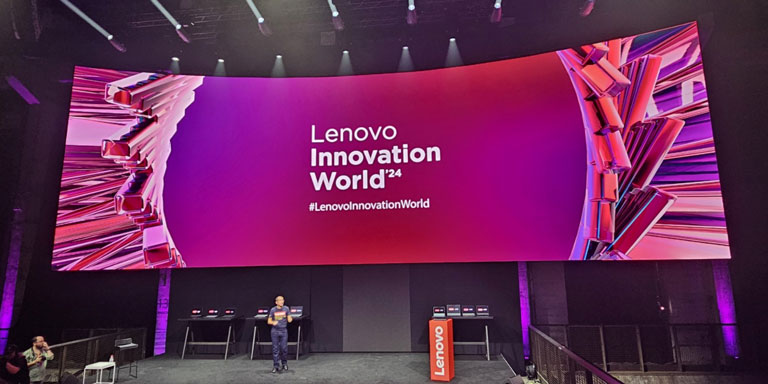18
Sep
Lenovo Innovation World 2024 – Making Copilot+ PC Mainstream
This year’s Lenovo Innovation World was in Berlin, right before the largest European consumer electronics show, IFA 2024. During the event, Lenovo announced scores of Intel Core Ultra 200V (aka Lunar Lake), AMD Ryzen AI300, and Qualcomm Snapdragon X Plus (8 core) based Copilot+ PCs across its ThinkPad™, ThinkBook™, Yoga™, and IdeaPad™ portfolio. These address all segments (enterprise, consumer, prosumer) and price tiers. With the newly announced and already commercial Qualcomm’s Snapdragon X Elite and X Plus-based laptops, Lenovo is making Copilot+ PCs mainstream.
Let’s look at what they announced at the event:
Intel Core Ultra 200V laptops:
-
Lenovo Yoga Slim 7i Aura Edition (15″, 9)
-
Lenovo ThinkPad™ X1 Carbon Gen 13 Aura Edition
-
Lenovo Auto Twist AI PC proof of concept
AMD Ryzen AI300 laptops:
-
The Lenovo Yoga Pro 7 (14”, 9) – Premium Prosumer
-
Lenovo IdeaPad Slim 5 (13” and 15”, 10)
-
ThinkPad T14s Gen 6 AMD – Mainstream Enterprise
-
ThinkBook 16 Gen 7 and Gen 7+ – Affordable Enterprise
Snapdragon X Plus laptops
-
The Lenovo IdeaPad Slim 5x (14”, 9)
-
Lenovo IdeaPad 5x 2-in-1 (14”, 9)
Other notable announcements:
-
AURA Edition – Exclusive Lenovo and Intel features that include five Smart Modes for better user experience and usability, impressive Smart Share through which pictures on the phone can be instantly seen on the PC with a simple tap, and Smart Care, which gives real-time support from Lenovo technicians
-
Lenovo Creator Zone – Gen AI based Image creation powered by on-device AI in collaboration with Midjourney/Stability AI.
-
AI PC Fast Start—A service designed to help enterprises easily transition to AI-ready devices, maximizing ROI through AI-powered advisory and simplified deployment.


0 comments